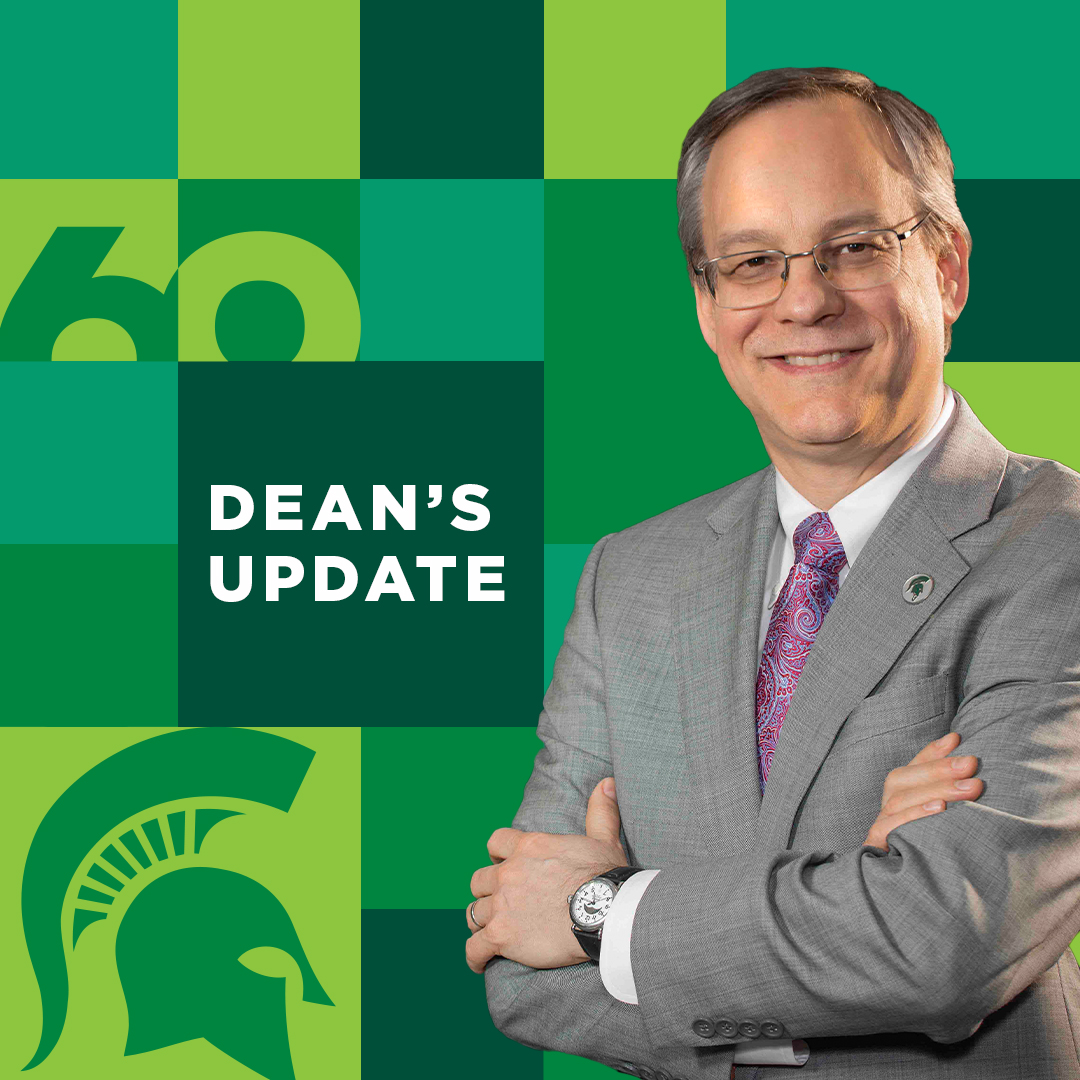Dean's Update
July 12, 2024 - Aron Sousa, MD

Friends,
It has taken a little while to get all the budgets in order, but I am happy to announce the 1964 Project faculty positions the college will be funding. One position will go to the Department of Medicine for a health services researcher working to address health equity and health disparities through action on social determinants of health (SDOH) and the structural inequities that determine them. This new position is tied to the NIH funded program of Ade Olomu, MD, and colleagues, and it takes a multipronged approach to improving outcomes for patients with chronic disease.
For the other position, the Department of Biochemistry and Molecular Biology will begin their search for a scientist addressing cancer disparities in Native American populations. The department and their chair, Dr. Olorunseun “Seun” Ogunwobi, are leading the development of a new MSU Center for Cancer Health Equity Research (CCHER). This faculty line will be a part of that center. Native Americans have amongst the most significant cancer disparities in the country, and this position is designed to combine epidemiologic and biochemical approaches to understanding and addressing the disparities in cancer care and outcomes for Native Americans.
The 1964 Project rating committee did not specifically consider other projects in the college in their assessments, but this new position dovetails well with other initiatives in the college aimed at improving opportunity and health for indigenous populations. Over the last two years, we have created an Indigenous Pathway for students from federally recognized tribes who will receive mentoring, clinical experiences, and scholarship support on their way to an MD. And, this year the college joined the AIMES Alliance, which is dedicated to improving access to health care for tribal members through medical education, including residencies in tribal settings. As a part of that effort, one of our faculty, Frank Animikwam, MD (’17), and our assistant dean for external relations, Jerry Kooiman, visited Capitol Hill this spring advocating for more graduate medical education (residency training) opportunities in tribal settings.
Last year, Family Medicine won a 1964 Project position with a proposal for a researcher based in Southeast Michigan focusing on health disparities in populations from the Middle East and North Africa. I am happy to say that we are close to hiring a faculty member, and I’m excited to have our first 1964 hire on their way to us.
Over the last few weeks, I have had a series of emails and phone calls with people trying to help medical students from Gaza continue their education. As you will realize, it is not possible to be a regular medical student in a war zone. The issue is acute, because so many hospitals and so much health infrastructure have been destroyed that medical education is not really possible. You do not have to take sides to see this is a humanitarian issue.
Many institutions, including ours, have tried to help medical students displaced by other wars, like that in Ukraine, continue their education. When there has been success, it is almost always found in surrounding countries. For a variety of legal and practical reasons, medical schools, including ours, generally only admit citizens and permanent residents. Bringing students to the US for medical training is very difficult, but we can try to extend our education to the region. We do not have solutions yet, but we will try in the hope we can alleviate some suffering in the future. As Dr. El Reda said to me, “We should not normalize suffering.” So be it.
Serving the people with you,
Aron
Aron Sousa, MD, FACP
Dean, Michigan State University College of Human Medicine

